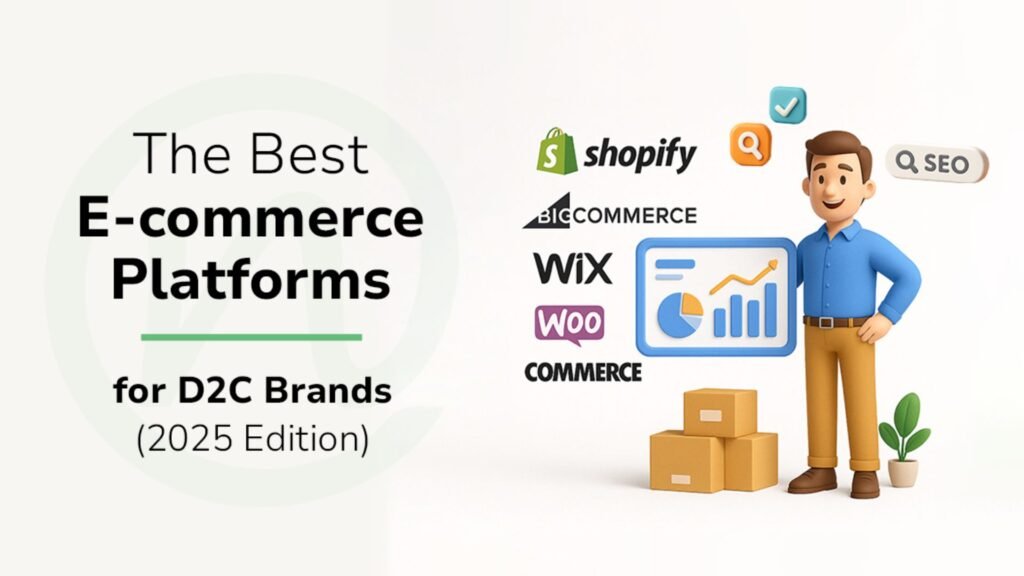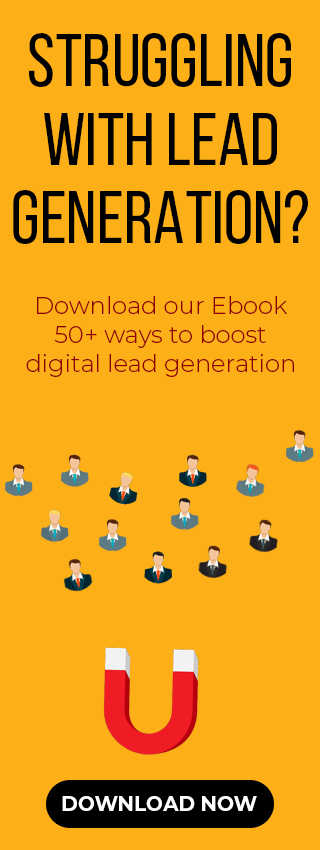The Direct-to-Consumer (D2C) shake-up has changed how modern brands reach customers. In 2025 more business owners are bypassing traditional retail channels and selling straight through their own online shops.
Statista predicts the global D2C eCommerce market will exceed $260 billion by 2025 showing how brands are moving toward this customer-focused approach. Whether you run a small business launching your first online store or a growing D2C brand expanding operations, picking the right tools can determine your success or failure.
This guide explores the top D2C eCommerce tools that help you handle everything—from creating websites and processing payments to automating marketing and analyzing data—without hassle.
Top 20 D2C eCommerce Tools to Grow and Expand Your Brand
1. Shopify – The Backbone of D2C Stores
When you start a D2C brand, Shopify comes to mind first. It’s known to be simple, scalable, and compatible with other tools. Shopify lets you build an eye-catching online store even if you can’t code.
Why it matters:
- Drag-and-drop builder: You can design a sleek website with ease.
- App marketplace: More than 8,000 apps for marketing, shipping, and payments.
- Global scalability: Handle multiple currencies worldwide shipping, and automate taxes.
- Shopify Plus: Ideal for D2C brands at the enterprise level.
Example: Companies like Allbirds and Gymshark began small but grew worldwide using Shopify’s platform.
Pricing: Begins at $39/month (Basic Plan).
2. WooCommerce
If WordPress is your preference WooCommerce is the eCommerce plugin you need. It transforms any WordPress site into a complete online shop.
Why D2C brands love it:
- Open-source adaptability: You have control over hosting, design, and performance.
- Easy to find online: WordPress’s structure helps brands show up quicker in search results.
- Budget-friendly: Free to use, with paid add-ons available.
- Lots of help: Thousands of developers and add-ons to make it your own.
Works best for: Online shops that already use WordPress and want full control.
3. Klaviyo
For online shops personalized marketing is key. Klaviyo is a marketing tool that focuses on email and text message campaigns based on how customers act.
What makes it stand out:
- Customer groups: Reach out to users based on what they’ve bought and how they interact.
- Automations: Set up flows to welcome new customers, recover abandoned carts, and follow up after purchases.
- Integrations: Connects with Shopify, WooCommerce, and BigCommerce.
- Data-driven insights: Gives you a clear picture of your customers’ lifetime value (LTV).
Statista finds that more than 75% of D2C sales come from returning customers—making Klaviyo’s personalization tools a must-have.
4. Gorgias
The customer experience can either boost or sink a D2C brand. Gorgias puts all customer conversations—email, chat, social, and SMS—into a single dashboard.
Why you can’t do without it:
- One inbox for all: Handle chats from different platforms in one place.
- Smart responses: Answer frequent questions about orders and returns .
- Sales impact tracking: See how customer support affects your bottom line.
Real-world example: Companies like Steve Madden and Olipop rely on Gorgias to provide top-notch customer support.
5. Hotjar
Want to watch how people use your website? Hotjar shows you user actions with heatmaps, recorded sessions, and user surveys.
Why D2C brands can’t get enough:
- Find out where customers leave your site.
- Boost conversion rates through UX tweaks backed by data.
- Get direct input from customers.
Hotjar simplifies optimization helping you enhance your store’s layout and customer journey.
6. ShipStation
As your D2C orders increase, fulfillment management gets tricky. ShipStation streamlines the whole shipping process—from creating labels to updating tracking.
Key features:
- Works with big carriers: FedEx, UPS, DHL, and others.
- Smart order handling: Set up rules to pick carriers or shipping methods .
- Custom tracking: Boost after-purchase experience with branded tracking pages.
This tool helps you save time, cut down on mistakes, and get things done faster—key to earning customers’ confidence.
7. Google Analytics 4 (GA4)
By 2025, you’ll need to base your choices on data. Google Analytics 4 shows D2C founders which channels bring in traffic, sales, and returning customers.
Main advantages:
- Watch how customers act on your website and app.
- Shows your best-selling products and target groups.
- Works with Google Ads to improve your follow-up ads.
Tip from the Pros: Mix GA4 stats with Klaviyo insights to create strong, sales-driven marketing plans.
8. Canva
Not every D2C brand can hire a design team. Canva fills this need by offering professional, user-friendly templates for ads, social posts, and product visuals.
Why it works:
- Templates for everything: From Instagram stories to product catalogs.
- Team collaboration: Work together in real-time.
- Brand kits: Maintain consistency in colors, logos, and fonts.
Visual consistency plays a crucial role in D2C branding—Canva helps keep your visuals crisp and true to your brand.
9. ReConvert
A simple way to boost your D2C sales is to increase your Average Order Value (AOV). ReConvert lends a hand with clever upsells and custom thank-you pages.
How it helps:
- Include upsells or similar items after checkout.
- Gather birthday info or ask for reviews to keep customers coming back.
- raise profits with an easy setup that works right away.
Example: Many Shopify D2C shops see a 15–20% jump in AOV when they start using ReConvert.
10. SEMrush
To get new customers, you need to be seen. SEMrush gives you a full set of tools for SEO, content marketing, and checking out what your rivals are doing.
Main benefits:
- Discover keywords that put your competitors on top.
- Check your website’s SEO health.
- Keep an eye on backlinks and how strong your domain is.
- Create content that pulls in organic traffic.
Statista shows that search engines still bring in over 40% of D2C traffic—so SEO tools like SEMrush are a must-have.
11. Meta Ads Manager
Social media remains the top channel for D2C brands to grow. With Meta Ads Manager, you can build, monitor, and improve your Facebook and Instagram campaigns.
Why it’s essential:
- Focus on specific groups based on what they like or do.
- See how well your store turns visitors into buyers.
- Reach out to people who left items in their cart or visited .
When used with Klaviyo and GA4, Meta Ads Manager can bring in a lot of money for D2C campaigns.
12. Zapier
Using many tools can get confusing. Zapier connects your apps doing routine tasks and keeping your data in sync.
Examples:
- Keep Shopify orders and Google Sheets in sync.
- Add new people from Meta Ads to Klaviyo.
- Get Slack messages for new sales.
Automation helps small teams work better and grow faster.
13. Notion
For everything from content schedules to product plans, Notion stands out as the top choice for teams working together and managing projects.
How it helps:
- Keep track of content plans, social media updates, or launch to-do lists.
- Set up internal guides for brand rules.
- Work with different teams in one shared space.
D2C founders like Notion because it brings together creative ideas and planning in one spot.
14. Yotpo
Social proof plays a crucial role in D2C. Yotpo assists in gathering and showcasing verified reviews, managing loyalty programs, and overseeing referrals.
Highlights:
- Display reviews and photos to increase credibility.
- Create loyalty points and referral programs.
- Connect with Shopify and Klaviyo.
15. Stripe
Streamlined checkout processes reduce cart abandonment. Stripe provides global payment processing with advanced fraud protection and support for multiple currencies.
Benefits:
- Take cards, wallets, and global payments.
- Quick payouts and clear pricing.
- Works with all big D2C platforms.
Stripe’s easy-to-use tools make it great for new and big D2C brands alike.
16. Google Tag Manager
Handling many tracking codes can get tricky. Google Tag Manager (GTM) puts all your marketing and analytics tags in one place.
Benefits:
- Add tracking pixels without changing code.
- Watch conversions across platforms.
- Get cleaner data and a faster website.
For D2C founders who rely on data, GTM makes your analytics setup simpler.
17. Loom
Loom allows you to create short videos for customers, team members, or partners. It’s perfect to make your D2C brand communication more personal.
Why it’s great:
- Create custom thank-you videos.
- Make tutorials or show unboxing experiences.
- Work together from different locations with better understanding.
Video helps build stronger emotional bonds with your audience boosting loyalty.
18. Asana
From launching products to running marketing campaigns, Asana keeps your team in order.
Main features:
- Keep track of tasks and deadlines.
- Automate workflows.
- Use dashboard reports to check progress.
As your D2C business grows, Asana helps make sure everything runs between teams.
19. Canva Magic Studio
In 2025, design has more energy than ever. Canva’s Magic Studio adds clever features like taking out backgrounds, changing sizes , and giving AI-powered writing ideas—while keeping your creative flair.
This works great for founders who need quick, steady, and good-looking visuals for ads, packaging, and social media.
20. Modifyed Digital
While tools help build your foundation, smart planning ensures success in the long run. This is where Modifyed Digital steps in.
Modifyed is a top digital marketing agency that focuses on D2C brand growth. They offer services in SEO paid ads, social media, content marketing, and ways to boost conversions. The team has worked with leading Indian and global D2C brands helping them bring in more traffic, make ad spending more efficient, and grow their income in a way that lasts.
What sets Modifyed apart:
- Custom-made plans for D2C startups and big companies.
- Deep dive into data and campaigns that focus on return on investment.
- Skills in telling stories, creating brand designs, and mapping customer journeys.
If you want to grow your D2C brand beyond just sales—and build a loyal community—Modifyed Digital is your partner to achieve measurable long-term success.
Final Thoughts
Creating a successful D2C eCommerce brand in 2025 needs the right mix of technology, creativity, and strategy. The tools mentioned above—Shopify, Klaviyo, Gorgias, SEMrush, and others—help you to improve operations, tailor marketing, and make customers happy at every step.
Keep in mind, tools have value when backed by a solid plan. Begin with small steps, add new elements bit by bit, and stay focused on giving your customers what they need. That’s the real key to winning in the D2C world.
FAQs
1. What is a D2C eCommerce brand?
A D2C (Direct-to-Consumer) brand sells its products straight to buyers through online channels, without middlemen like wholesalers or retailers. This approach gives brands more say over pricing, customer info, and how people see their brand.
2. How do I choose the best tools for my D2C business?
Begin with your current needs—like setting up your store (Shopify/WooCommerce) automating marketing (Klaviyo), and tracking analytics (GA4). As your business expands, include advanced tools to optimize SEO, improve customer service, and streamline fulfillment.
3. Which D2C tool works best to automate marketing?
Klaviyo stands out for email and SMS marketing. It enables you to segment based on behavior, automate processes, and connect with eCommerce platforms making your campaigns more focused and profitable.
4. Are these tools affordable for small businesses?
Sure thing. Most D2C tools give you free trials or flexible pricing plans. You can kick off with basic versions and level up as your business grows. The main thing is to zero in on ROI—every tool should boost growth or make things run smoother.
Also Read:
How to Start a D2C Brand in India
Unlock Voice Search Optimization for Real Estate Businesses
How to use Meta Creator Studio for Instagram





